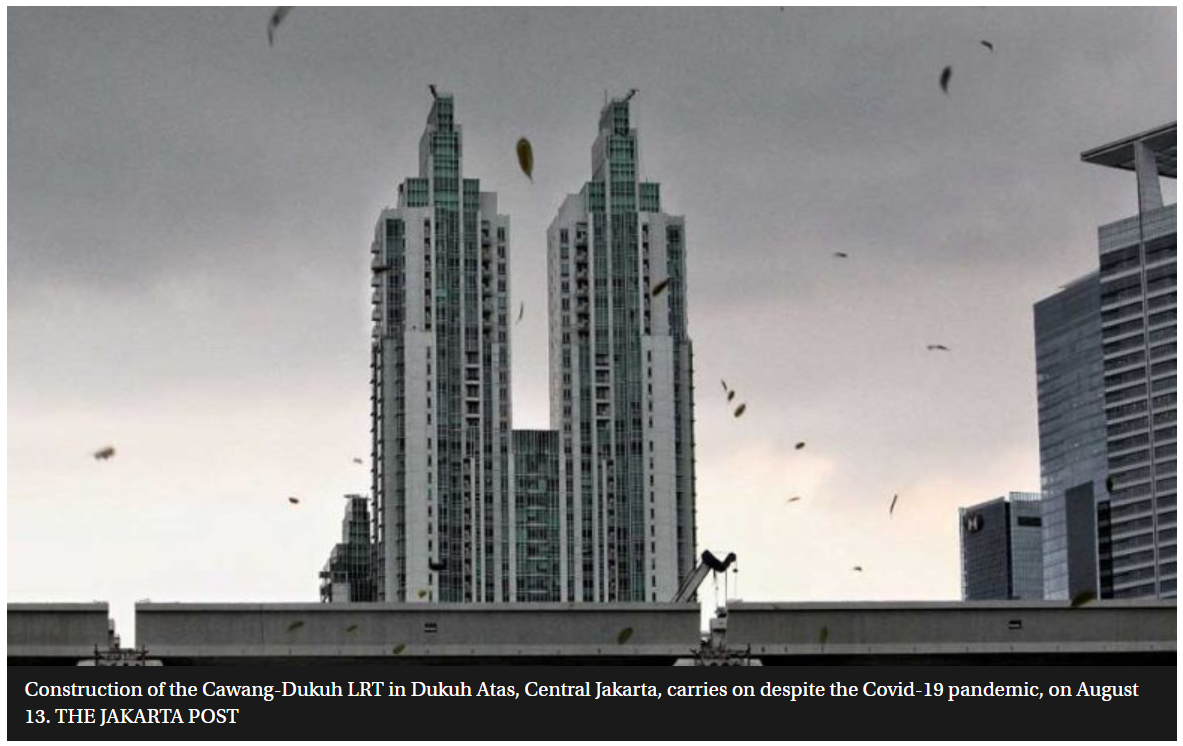Indonesian gov’t bets on Q4 growth to even out possible Q3 losses
The Indonesian government is banking on fourth-quarter gross domestic product (GDP) growth to reach its annual target as an unprecedented Covid-19 wave promises to dampen the third-quarter economic recovery.
Coordinating Minister for Economic Affairs Airlangga Hartarto told reporters that the government would focus its resources on containing the second virus wave in the third quarter so that it could ease public activity restrictions (PPKM) by the fourth quarter.
He said the government aimed to lower the number of active Covid-19 cases to around 200,000 before the fourth quarter, down from the current level of around 500,000 but still higher than the average of around 100,000 active cases in the second quarter.
The government has lowered its best-case third-quarter GDP growth outlook from 5.7 per cent to 5.4 per cent but has held its best-case fourth-quarter outlook at 5.9 per cent. Under this scenario, full-year GDP would grow 4.5 per cent.
“The government sees potential for the fourth quarter to turn things around again,” Airlangga said.
Indonesia’s GDP had grown at a 17-year high of 7.07 per cent in the second quarter.
GDP is expected to slow down in the third quarter as a result of emergency and multi-tiered PPKM.
Indonesia introduced emergency PPKM on July 3 and has extended restrictions, under a different name, three times.
Authorities point to the arrival of the more transmissible Delta variant and the country’s slow vaccine rollout as the main causes of the second wave.
In addition to addressing the pandemic, Airlangga pledged to use the economic recovery programme (PEN) budget to spur consumption and business activity by cutting rent taxes for retailers and luxury taxes on newly purchased cars and houses, among other measures.
He added that the updated Online Single Submission (OSS) system slated for launch this week was expected to improve the country’s ease of doing business ranking, which he said would boost investment in the second half of the year.
Finance minister Sri Mulyani Indrawati on August 5 said the Delta variant of the virus had brought downside risks to the third quarter, especially in household consumption.
The Manufacturing Purchasing Managers’ Index (PMI) fell to 40.1 in July, ending a nine-month expansion in factory activity, and the retail sales index fell by 11 per cent in June, a decline that is expected to continue with the July figure.
The US and China, major trade partners of Indonesia, have recently seen upticks in Covid-19 cases as a result of the Delta variant. This could dampen export growth, a key driver of the country’s second-quarter GDP growth.
Sri Mulyani said: “The most dramatic case is India. We can see its economy was heavily affected by the Delta variant. So [Indonesia] cannot let its guard down.”
Lionel Priyadi, macro strategist and equity analyst at Samuel Sekuritas Indonesia, wrote in a statement on August 6 that the global Delta variant outbreak and PPKM would likely halt Indonesia’s recovery momentum.
The securities firm expects Indonesia’s economy to grow between 2.5 per cent and 3.3 per cent this year, lower than the national forecast, as the government seemed more concerned about shrinking its budget deficit.
“The recovery momentum … will not continue in the second half due to the spread of the deadly Delta variant, which has forced the government to implement partial lockdowns,” Lionel said. “More stimulus is needed.”
He also expected unemployment to rise again, which would hurt household consumption, after the rate fell to 6.3 per cent in February 2021.
Institute for Development of Economics and Finance executive director Tauhid Ahmad expected GDP growth to fall below government expectations as new daily caseloads remained above 30,000 and the vaccination drive moved sluggishly.
Tauhid told reporters: “We project that Indonesia’s growth will drop to three-to-four per cent in the third quarter. Our growth in the third quarter is still fragile.”
THE JAKARTA POST/ASIA NEWS NETWORK


 English
English




